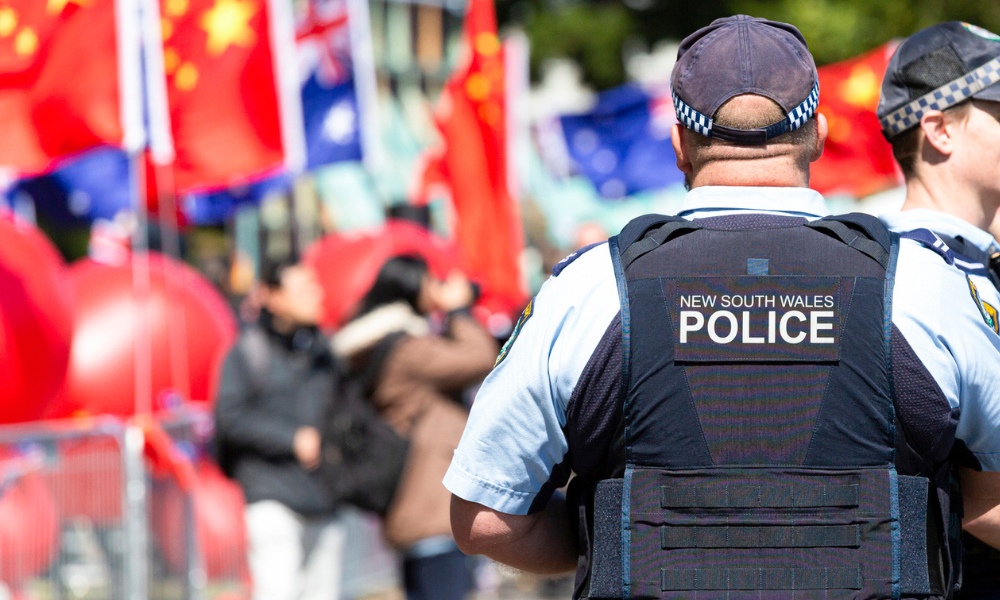
Transfers for police officers who came to blows were ruled unfair to their families

The Industrial Relations Commission of New South Wales (IRC) recently dealt with a case involving two police officers who claimed they were subjected to unreasonable disciplinary action following a physical fight at a police residence.
The superintendent, who ordered disciplinary transfers for the two officers, argued that the action was lawful as the evidence showed that the two officers were no longer helpful in the community they were assigned to.
But the IRC ruling stated that, while deserved, the action would bring unfair hardship on the feuding officers’ families.
According to the IRC, the two senior constables had been stationed at Boggabri Police Station as lockup keepers for more than four years. The officers lived with their families in separate, neighbouring houses that are owned by the state and rented to the families for about $60 per month, according to the ruling.
During time off work on 6 October 2019, the police officers gathered with their families and some other guests to watch football at the house of one of the senior constables. “Alcohol was consumed by both officers and their wives throughout the event,” the IRC noted.
Following an argument between the wives of the police officers later that day, the senior constables also came to blows.
“The fight continued over a considerable period of time resulting in both officers receiving physical injuries,” the IRC noted. “At one point a triple zero call was made and paramedics from NSW Ambulance, as well as police from neighbouring towns, were dispatched to the scene.”
While neither officer was charged with a criminal offence, their superintendent carried out disciplinary orders against them.
“In the circumstances, there appear to be grounds on which I could conclude that your conduct was contrary to the Police Act 1990, the Police Regulation 2015, and the NSW Police Force Code of Conduct and Ethics,” the superintendent stated in the order.
The order, according to the IRC ruling, stated that the officers were transferred to separate towns in the area, and must “move out of the police premises where they currently reside paying rent of approximately $60 per week.”
One of the two officers, who alleged he was acting in self-defence during the fight, stated that transferring to another station would impose a significant financial burden on his family if they were required to rent a home elsewhere.
“I had not acted inappropriately, or in contradiction to any values or statements I am required to abide by as a NSW police officer,” the police officer said.
The other police officer, who was allegedly the aggressor, stated that if he were forced to move from the state-owned residence, his son would suffer. The child had been diagnosed with severe high functioning autism anxiety, depression and suicidal tendencies, the IRC ruling states, and was attending “a specially designed class for children with multiple disabilities with mental illness” which, the officer argued, the boy would be unable to attend if the family were forced to move.
However, the superintendent who made the disciplinary orders contended that she had “received a number of reports of problems” between the families of the police officers since the incident. Thus, the transfers of the officers was only rightful.
Despite the officers’ contentions, the Commission still found the disciplinary transfers neither unreasonable nor unjust.
“I do, however, find these orders to be harsh, primarily due to the impact they are likely to have on the children of the two applicants and the significant financial burden on both families due to the loss of their police residences,” the ruling states.
While the superintendent’s order was found reasonable, the Commission ultimately revoked the disciplinary transfer of the two police officers.
Instead, it ordered that the officers be reduced in rank for two years starting from the date of the IRC’s decision and thereafter be reinstated to the position they held immediately before the decision.
The reduction in rank will, over the two years, cost a loss in income of $50,024 for one of the officers and $6,651 for the other.
In his ruling, the Commissioner stated: “I am confident that [the officers] will have a viable working relationship and a harmonious personal relationship moving forward.”